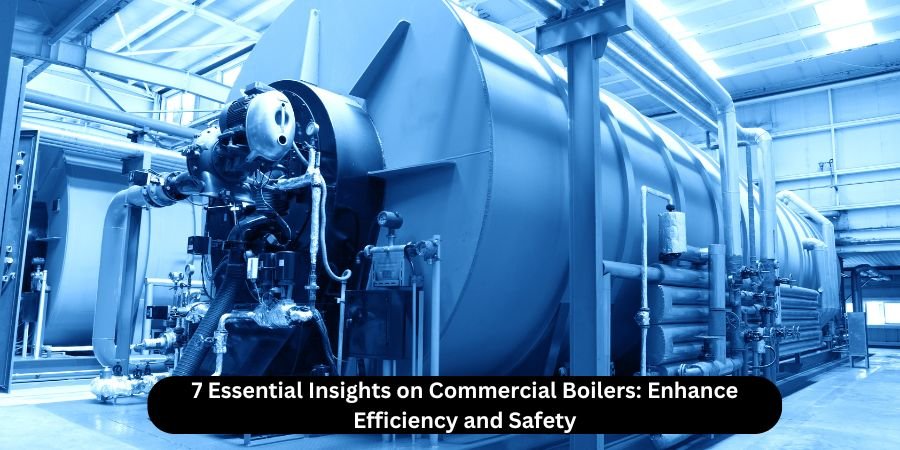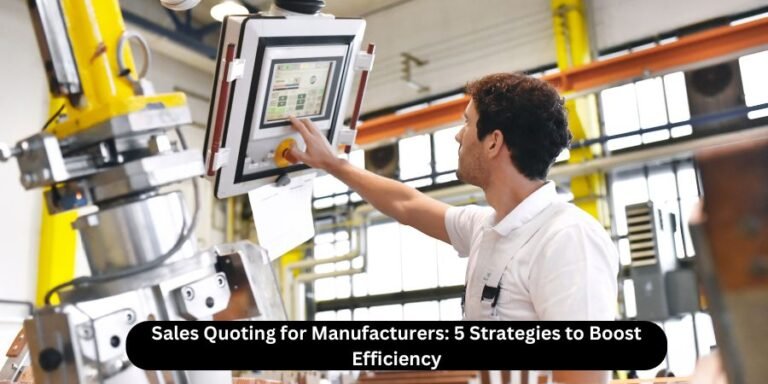In the world of commercial facilities, the importance of a reliable, efficient heating system cannot be overstated. Commercial boilers stand at the heart of this essential infrastructure, powering businesses, schools, hospitals, and more with the vital heat and hot water they require to function optimally. This comprehensive guide dives deep into the world of commercial boilers, offering valuable insights to ensure your facility’s heating system operates at peak efficiency and safety.
Understanding Commercial Boilers
Commercial boilers are robust systems designed to provide a consistent supply of hot water or steam for various applications, from heating spaces to supplying hot water for sanitation purposes. Unlike their residential counterparts, these boilers are built to meet the demanding requirements of commercial facilities, ensuring a reliable source of heat even under the most strenuous conditions.
The Role of Efficiency in Commercial Boilers
Efficiency isn’t just a buzzword; it’s a critical consideration for any facility manager or business owner. An efficient commercial boiler not only reduces operational costs but also minimizes the carbon footprint of your facility, contributing to a greener, more sustainable environment. Innovations in boiler technology, such as condensing boilers and advanced control systems, have made achieving high efficiency levels more accessible than ever.
Safety Considerations for Your Boiler
Safety is paramount when it comes to commercial boilers. Regular maintenance and inspections are crucial to preventing accidents and ensuring your boiler operates within regulatory standards. Implementing a routine maintenance schedule can help identify potential issues before they escalate into serious problems, safeguarding your facility and its occupants.
The Impact of Size and Selection
Selecting the right size and type of boiler is crucial for efficiency and reliability. An undersized boiler can lead to constant running, increasing wear and tear, while an oversized boiler can lead to inefficiency and higher energy costs. Consulting with a professional to assess your facility’s specific needs can help ensure you choose the most appropriate boiler for your operations.
Retrofitting and Upgrading
For many facilities, retrofitting or upgrading an existing boiler can provide a cost-effective way to improve efficiency and safety. Modern boilers offer significant advantages over older models, including reduced energy consumption, lower emissions, and enhanced safety features. Considering an upgrade can be a wise investment in your facility’s future.
The Role of Maintenance in Longevity
Regular maintenance is not just about safety; it’s also key to extending the lifespan of your commercial boiler. From routine inspections to cleaning and part replacements, a well-maintained boiler can serve your facility reliably for many years, maximizing your investment.
Choosing the Right Boiler for Your Facility
The decision to invest in a new commercial boiler should not be taken lightly. Factors such as the size of your facility, the nature of its use, and your budget all play crucial roles in this decision. Engaging with a knowledgeable provider can help you navigate these considerations, ensuring you select a boiler that meets your needs while optimizing efficiency and safety.
In conclusion, commercial boilers are a critical component of any facility’s infrastructure, demanding careful consideration in terms of efficiency, safety, and operational reliability. By focusing on these key aspects, facility managers can ensure their heating systems provide a safe, comfortable environment for occupants while also managing operational costs effectively. Whether you’re considering an upgrade or simply looking to improve your existing system, keeping these insights in mind can help you make informed decisions that benefit your facility in the long term.In the world of commercial facilities, the importance of a reliable, efficient heating system cannot be overstated. Commercial boilers stand at the heart of this essential infrastructure, powering businesses, schools, hospitals, and more with the vital heat and hot water they require to function optimally. This comprehensive guide dives deep into the world of commercial boilers, offering valuable insights to ensure your facility’s heating system operates at peak efficiency and safety.
Understanding Commercial Boilers
Commercial boilers are robust systems designed to provide a consistent supply of hot water or steam for various applications, from heating spaces to supplying hot water for sanitation purposes. Unlike their residential counterparts, these boilers are built to meet the demanding requirements of commercial facilities, ensuring a reliable source of heat even under the most strenuous conditions.
The Role of Efficiency in Commercial Boilers
Efficiency isn’t just a buzzword; it’s a critical consideration for any facility manager or business owner. An efficient commercial boiler not only reduces operational costs but also minimizes the carbon footprint of your facility, contributing to a greener, more sustainable environment. Innovations in boiler technology, such as condensing boilers and advanced control systems, have made achieving high efficiency levels more accessible than ever.
Safety Considerations for Your Boiler
Safety is paramount when it comes to commercial boilers. Regular maintenance and inspections are crucial to preventing accidents and ensuring your boiler operates within regulatory standards. Implementing a routine maintenance schedule can help identify potential issues before they escalate into serious problems, safeguarding your facility and its occupants.
The Impact of Size and Selection
Selecting the right size and type of boiler is crucial for efficiency and reliability. An undersized boiler can lead to constant running, increasing wear and tear, while an oversized boiler can lead to inefficiency and higher energy costs. Consulting with a professional to assess your facility’s specific needs can help ensure you choose the most appropriate boiler for your operations.
Retrofitting and Upgrading
For many facilities, retrofitting or upgrading an existing boiler can provide a cost-effective way to improve efficiency and safety. Modern boilers offer significant advantages over older models, including reduced energy consumption, lower emissions, and enhanced safety features. Considering an upgrade can be a wise investment in your facility’s future.
The Role of Maintenance in Longevity
Regular maintenance is not just about safety; it’s also key to extending the lifespan of your commercial boiler. From routine inspections to cleaning and part replacements, a well-maintained boiler can serve your facility reliably for many years, maximizing your investment.
Choosing the Right Boiler for Your Facility
The decision to invest in a new commercial boiler should not be taken lightly. Factors such as the size of your facility, the nature of its use, and your budget all play crucial roles in this decision. Engaging with a knowledgeable provider can help you navigate these considerations, ensuring you select a boiler that meets your needs while optimizing efficiency and safety.
In conclusion, commercial boilers are a critical component of any facility’s infrastructure, demanding careful consideration in terms of efficiency, safety, and operational reliability. By focusing on these key aspects, facility managers can ensure their heating systems provide a safe, comfortable environment for occupants while also managing operational costs effectively. Whether you’re considering an upgrade or simply looking to improve your existing system, keeping these insights in mind can help you make informed decisions that benefit your facility in the long term.





